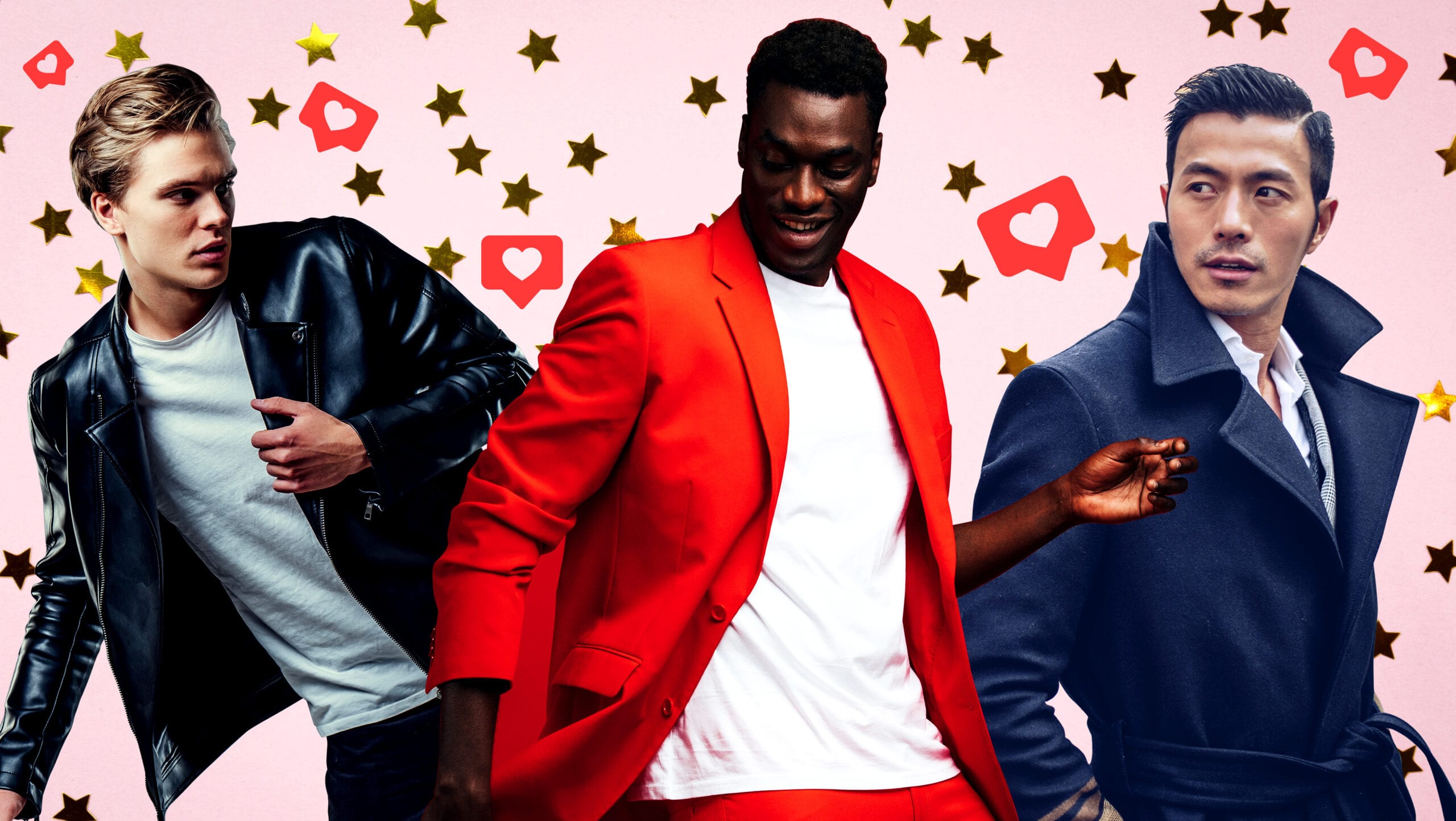My gay friends and I stare at hot guys all the time. One of us will see an image online of a sexy man—an actor, an athlete, a handsome man in the news, a vintage photograph—and send the image to the others. Subject heading: Hot or not?
Yes, it’s childish, objectifying these men otherwise unknown to us. Yes, it is demeaning and sometimes hostile, and the practice buys into and fortifies the conceit that good-looking people are primarily decorative, sexy baubles who are not full human beings. But it’s fun—Hollywood blockbusters haul in billions a year for a reason.
It was a new film, Entropic, by award-winning independent filmmaker R.W. Gray, that got me thinking about how I view hot men these days. The film, now touring the festival circuit, takes on gay culture’s tangled relationship to male beauty by upending male beauty’s traditional narratives. Nothing—even good looks—comes without cost, the film suggests.
But I wasn’t totally convinced by Entropic. We are gay men of a certain age—over 50, mostly Gen X—and being able to talk openly about men we find desirable still feels like illicit, silly fun and a bit daring. We grew up before everybody got to do the same, in the privacy of their own phones, and long before gay men were allowed to speak about desire. The reality—that the whole world does this all day long, via devices and apps—hardly dulls the naughty tingle. Why do we feel this is okay?
I remind myself that, for starters, nobody is getting hurt (at least not directly—the culture at large is another matter). For years, queer men like me were forbidden from the same game straight men have played since humans started walking upright—often at risk of physical violence, over so little as a too-long-held glance. So we convince ourselves we are evening out the power dynamics by taking control of the gaze. I’m aware all of the above is ultimately solipsistic bullshit. I look at beautiful men the way other people look at real estate or new cars. I’m not ashamed of this practice, but I’m not proud of it either.
It helps knowing that, as research shows, good-looking men have it easier than the rest of us. Men who are perceived as “good looking” make more money, have better careers (even in fields not related to how they look, such as academia) and tend to partner with other people perceived as attractive (people “in their league”). They also benefit from the “halo effect,” a phenomenon in which good-looking folks are perceived as more honest, more competent, more mate-worthy and more trustworthy.
But it’s not all rainbows and butterflies for hot people. Many of these studies acknowledge that the science of handsomeness and its effects is in its infancy, and it’s difficult to pinpoint a universal understanding of hotness. Furthermore, cultural and racial biases will always be in play in any study of “hotness”—where Eurocentric (a.k.a. white) notions of beauty are still the “industry standard.” Researchers also note an intriguing contradiction: While men who are designated “good looking” generally glide through life like George Clooney skating down a red carpet, they are also—and frequently so—perceived as lacking intelligence. Another twist: Good-looking men do not do well in situations that involve competitiveness, be it in dating or the workplace, because potential dates and co-workers perceive them as threats. Psychologists call this the “attractiveness penalty.”
In other words, if you are lucky enough to be read as a good-looking man, the people reading you as such likely hold both inflated ideas about your worth and unpleasant assumptions about your smarts, and may consider your very presence in their lives as hurtful or diminishing. We simultaneously reward handsome men while not trusting them. This cannot be an easy road to navigate.
“This much is true: If you are a handsome man, I will assume you have no problems in life and automatically place you on a higher rung in the status ladder”
But I don’t buy any of it. After reading the studies and absorbing the supposedly very real and difficult challenges described by handsome men in multiple interviews and research projects, I still don’t believe they have hard lives. Rather, I can’t believe it. I’m chubby and plain. I know in my heart that my life is smaller than the lives lived by my handsome friends. I don’t even like to be photographed next to them! And I’d be lying if I claimed I am doing anything to correct my prejudice. Call me bitter, or just scarred (I’ve dated handsome men, but the disconnect in our worldviews was wider than Christoph Waltz’s forehead). But this much is true: If you are a handsome man, I will assume you have no problems in life and automatically place you on a higher rung in the status ladder. And I will probably hate you for it.
Pop culture is, typically, no help. Reality TV shows two types of people to the world: attractive and rich, or poor and strange. The implications are far from subtle—good-looking people are something to aspire to be, while the rest of us are a freak show to gawk at. Only art films use actors with more going for them than a perfect jawline (except when they play the villain or the comic relief in mainstream movies), and contemporary pop music is dominated by performers under 30 sporting gym-generated physiques.
Of course, outliers—singer Lizzo, or actor and talk-show host James Corden—exist. But they are sold to us as outliers. Celebrities with non-commercial looks are not allowed to exist without modifiers, such as “plus-size” or “mature.”
Some, like Gray’s film Entropic, are trying to fill that gap between the outliers and the beautiful. Without spoilers, this much can be relayed about the film: A man who is considered beautiful by all around him decides to create a situation wherein the people in his life are given a once-in-a-lifetime chance to treat him, or at least his body, as an object—something between a toy and a confessional. The results are alarming, heartbreaking and sometimes simply sweet and loving.
As the man/object says, for his whole life others have only seen “something that’s not me.” He’s never been allowed to be a real person, and thus never truly been intimate with anyone. The film also functions as a metaphor for the internet-warped way in which gay men now meet, and follows the metaphor to its logical, unnerving depths.
Entropic is much more about gay rage and loneliness than it is about beauty and the pitfalls of superficiality. On the other hand, the handsome man who feels misunderstood fully accepts his complicity in the social contract from which he has thrived. Nobody gets off the hook here. And, yes, we do get to see most of the handsome one naked—which makes us complicit, too (and maybe a little horny. Damn those pitfalls!).
Gray tells me his film questions “how little sympathy we have for those we consider beautiful. As though their beauty elevates them beyond common suffering. Perhaps we imagine if we had their beauty we would not want for anything? [Or] are we only looking at ourselves?”
“I think if you ask most people they would say objectification is bad,” Gray continues, “without really understanding how we all objectify.”
“I can, and must, recognize that the way I think about handsome men—a way that is in no small part fuelled by mainstream gay culture—is flawed”
Here is where Gray and I see things differently. I know objectification is bad—but that’s why I do it. Turning handsome men into targets for scorn or sexualization feels like a revenge served hot and fast, without consequences. I do it because it feels a little evil, as though I’m pecking at a universal imbalance—one I’ll never defeat but can at least mock. None of the above is pleasant to admit.
In Entropic, we are shown desire and its opposite, contempt, from the perspectives of the man/object and from his admirers, as well as from those his looks have triggered into states of self-loathing. Characters with long-suppressed desire for the man/object find themselves as disoriented by the opportunity provided—and as regretful—as they are excited. Similarly, characters with axes to grind discover they’re suddenly stunned by the hate they carry. Entropic is not a message film with a tidy summary of the issues.
“What if we really looked at who we desire?” Gray asks. “To desire is often to not look. What happens if you look closer? I wanted to play with desire [in the film] but in some ways disappoint it. It’s not always fun for an audience because desire and anxiety are connected. Stylistically though, for me, this is fun to play with as it steps outside Hollywood syntax.”
Any conversation about beauty is inherently full of contradictions. Beauty, in the abstract sense, is as intangible as humour, and about as reliably measured for success. I cannot accept the premise that handsome men are—in any way—a disadvantaged minority (nor am I reporting that Entropic takes that position, as the film is far too complex for such reductions). But I can, and must, recognize that the way I think about handsome men—a way that is in no small part fuelled by mainstream gay culture—is flawed.
Nobody has it all, and my issues with rampant lookism are messy and unhealthy. Good-looking people are not the problem. They just look like they are.


 Why you can trust Xtra
Why you can trust Xtra


